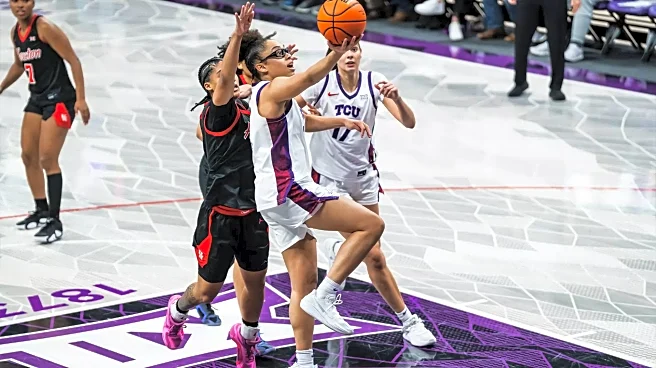What's Happening?
Former NBA player Stephon Marbury has spoken about the mental health challenges faced by Julius Randle during his tenure with the New York Knicks. Marbury, who himself experienced mental health struggles
during his career, particularly while playing for the Knicks, commented on the pressures of performing in New York, a major media market. Randle, now with the Minnesota Timberwolves, had previously opened up about his mental health issues during his time in New York, where he was a two-time All-NBA player and three-time All-Star. Marbury noted that the intense scrutiny in New York can exacerbate personal challenges, a sentiment echoed by Randle in a recent interview. Randle was traded to the Timberwolves as part of a deal involving Karl-Anthony Towns and has since become an integral part of the team, helping them reach the Western Conference finals.
Why It's Important?
The discussion around Julius Randle's mental health highlights the broader issue of mental well-being among professional athletes, particularly those in high-pressure environments like New York. The acknowledgment of these challenges by figures like Marbury and Randle can help destigmatize mental health issues in sports, encouraging more athletes to seek help. This conversation is crucial as it can lead to better support systems within sports organizations, potentially improving player performance and personal well-being. The trade to Minnesota appears to have provided Randle with a more supportive environment, illustrating the impact of team culture and location on an athlete's mental health.
What's Next?
As the NBA continues to address mental health, there may be increased efforts to provide resources and support for players dealing with similar issues. Teams might implement more comprehensive mental health programs, and the league could introduce policies to ensure players have access to necessary support. The ongoing success of Randle with the Timberwolves could serve as a case study for the positive effects of addressing mental health proactively.
Beyond the Headlines
The situation underscores the importance of mental health awareness in professional sports, a field traditionally focused on physical performance. It also raises questions about the role of media and public expectations in contributing to athletes' mental health challenges. As more athletes speak out, there could be a cultural shift towards greater empathy and understanding of the pressures faced by professional sports figures.










